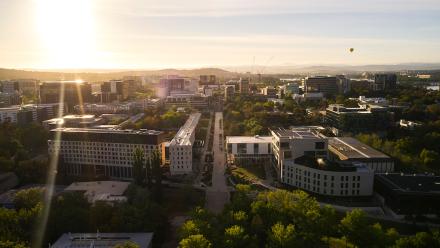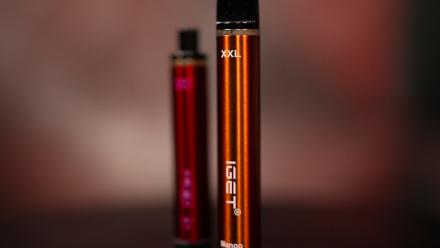PM plays with Middle East fire: Prof Amin Saikal
Prime Minister Scott Morrison is considering shifting the Australian embassy from Tel Aviv to Jerusalem and backing away from supporting the multilateral nuclear agreement with Iran. A decision to the effect would constitute a major shift in Australia's Middle East policy, with wider implications.
The former prime minister Malcolm Turnbull pursued a strong pro-Israeli policy attitude, but his nuanced and internationally savvy Minister for Foreign Affairs Julie Bishop found it was not in Australia's interest to follow US President Donald Trump in recognising Jerusalem as Israel's capital.
Similarly, while Turnbull may have had misgivings about the Iranian regime's theocratic dispositions and expanding regional influence, Bishop was willing to give Tehran the benefit of the doubt. She stood fast in maintaining Australia's diplomatic relations at ambassadorial level with Iran which have been uninterrupted since the Iranian revolution of 1978/79 that toppled the Shah's pro-Western monarchy.
Following the July 2015 signing of the multilateral nuclear agreement(known as the Joint Comprehensive Plan of Action), which curbed Iranian nuclear ambitions for military purposes in return for the lifting of US and US-led sanctions, Bishop visited Tehran. She was the first Australian foreign minister and for that matter one of the few high ranking Western politicians to do so. She regarded political engagement rather than confrontation as a more appropriate means of dealing with Iran, as did President Barack Obama's administration.
If Prime Minister Morrison departs from Australia's stance on these issues, it would be a mistake. A policy change might be attractive for ideological and electoral reasons, especially in the light of the Wentworth byelection, given the strong cohort of Jewish voters in the electorate, but it will do nothing to advance the cause of a peaceful settlement of the long-running Israeli-Palestinian conflict or stability in the Middle East.
A policy reversal could bring several short-term and long-term consequences. First of all, it would align Australia's Middle East policy with that of President Trump. It is now clear that President Trump is doing everything possible to destroy or reshape the international order into his own image. This has been evident in a series of his policy actions, of which two are relevant.
One is lending unprecedented US support for Israel under Prime Minister Benjamin Netanyahu, who has shown a steely determination not to end Israel's occupation of the Palestinian lands on the basis of the principle of "land for peace", which underlined the internationally backed Oslo peace process and its successor 'two-state solution'.
Another is Trump's withdrawal from JCPOA to punish Iran as the source of allegedly all "evils" in the Middle East. He has vowed to strangle Iran economically, despite Tehran having fully abided by the terms of the agreement and all other signatories to the deal (Britain, France, Germany, Russia and China) as well as the International Atomic Energy Agency having backed Tehran. For the first time in years, it is now the United States and Israel rather than Iran that are more isolated in the international community.
In the face of this, Australia has always argued for a rules-based international system, global stability and security. Regarding the Middle East, in spite of its increasingly pro-Israeli stance at the cost of overlooking the plight of the Palestinian people under occupation, Australia has formally stood for a resolution of the Palestinian issue based on a negotiated settlement that could usher in an independent and secure Palestinian state along the 1967 borders with Israel, with East Jerusalem as its capital.
If Australia moved away from this position, it would be enforcing the illegal Israeli occupation under international law and emboldening the extremists from both sides of the conflict to do more harm to one another. It would also play into the hands of radical violent groups such as Islamic State and al-Qaeda and undermine Australia's fight against terrorism.
In the same vein, an Australian dissension from JCPOA would tarnish Australia's reputation as a state promoting multilateralism as a viable foundation for a stable global setting. It would not only destroy Australia's policy of constructive engagement with Iran, but also isolate Australia from its main European democratic counterparts, which have vowed to maintain the JCPOA as necessary to preventing Iran from moving down the path of a military nuclear program and to diminishing international security concerns.
Let us not forget that today the Palestinian cause and JCPOA have a majority public support worldwide. A decision on the part of the Morrison government to punch more holes in Australia's Middle East policy for domestic political gains is unlikely to serve Australia's national interests. It would be well advised to engage in the kind of policy actions that could contribute to stabilising the Middle East and enhancing the reputation of Australia as a constructive middle power in world affairs.
Amin Saikal is Distinguished Professor and Director of the Centre for Arab and Islamic Studies (the Middle East and Central Asia) at the Australian 精东传媒app University, and author of the forthcoming book Iran Rising: The Survival and Future of the Islamic Republic .


